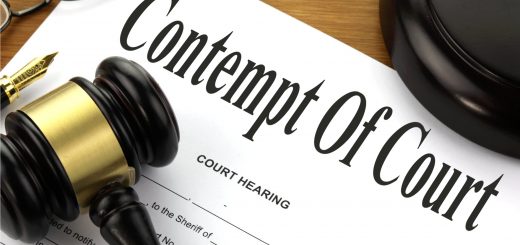Effects of the denial of bail to Hon Mohammed Ssegirinya and Hon Allan Ssewanyana by the High Court on judicial independence and rule of law

According to the Independent Magazine, High Court Judges in Uganda are scared of granting bail to Mohammed Ssegirinya and Allan Ssewanyana. The independent reports that the judges are scared of being picked up, held incognito, tortured and arraigned on bogus charges due to the opposition of President Tibihaburwa to the grant of bail to suspects charged with murder and other capital offenses.
This argument seems far fetched because however self destructive the Tibihaburwa regime is, the crooks around president Museveni are not going to arrest a High Court judge, hold him or her incognito, torture him or her and arraign him or her on bogus capital charges. President Tibihaburwa must know that the tolerance and thin Goodwill he enjoys due to political stability and his involvement in regional politics would instantly evaporate if he arrested and tortured a judge of co- equal branch of government. In the circumstances, the likelihood of this fear materializing is minimal at best and potentially non-existent.
So, what are the High Court judges afraid of? Why are judges according to lawyer Erias Lukwago dodging the bail applications by MPs Mohammed Ssegirinya and Allan Ssewanyana given that the same High Court granted them bail just a few weeks ago. In the interval between the duo being granted bail, rearrested and held incognito without charge for more than two days and finally being arraigned in court long after the mandatory 48 hours had elapsed is that president Tibihaburwa has come out strongly in opposition against the grant of bail to murder suspects. The president alleges that it undermines the rule of law when suspects accused of murder and other capital offenses are released soon after being arrested. The president doesn’t discuss the rule of law implications of arresting and holding potentially innocent suspect incognito for extended periods of time especially given the shoddy investigations and corruption that are prevalent in the Uganda Police Force. In Uganda, the police arrests and charges individuals before carrying out any meaningful investigation. Actually, the police usually charge individuals without having the reasonable suspicion sufficient for an arrest. Furthermore, police in Uganda is politicized and ordinarily operates on the orders of the president rather than exercising independent judgment. So, after the President came out strongly against the grant of bail, the co equal judicial branch of government is suddenly scared of hearing and granting bail to murder suspects.
Lawyer Erias Lukwago and the independent are wrong about the reason for the sudden fear and change of heart. The true reason for the fear and change of heart is the Justice Katutsi effect. This phenomenon arises from the failure to elevate or promote Justice Katutsi though he was one of the most able judicial officers of our time. Justice Katutsi made the error of being independent minded and treating Dr. Kiiza Besigye fairly in the bogus rape allegations of 2005. Therefore, the judges of the High Court are possibly scared of the same fate and other worse fate such as being transferred to a deadbeat court in some remote village. In reality the reason for the fear and change of heart is nothing but self preservation.
So suddenly the High Court is concerned about the suspects skipping bail and interfering with the investigation. Suddenly the high Court doubts the same reasons it based itsself on to grant bail to Mohammed Ssegirinya and Allan Ssewanyana. Before the president raged against the grant of bail to murder suspects, the accused MPs had sufficient grounds to be granted bail but after the complaints by the President the grounds have become insufficient. If current law requires that bail should be granted only in exceptional circumstances, then it must be bad law. The right to a fair trial requires that a person should not be burdened by having to defend himself or wait for a trial when there is insufficient evidence to sustain the claim against him or her. At the very least the high Court should have granted the suspects a preliminary evidenciary hearing to determine the strength of the evidence against them before denying them bail. The state is only entitled to hold a person pending trial when they have sufficient evidence to sustain charges against them. At the very least the state needs to prove on the balance of probabilities without presenting the witnesses that it is likely to succeed in establishing a case to answer. So as the High Court judges quiver in fear of being over looked for elevation in the judiciary because they upheld the rule of law for political opponents of the appointing authority, suspects that are most likely innocent rot in jail without adequate medical care. If history is to be believed, the state does not have the evidence to prove the charges brought against Mr. Ssegirinya and Mr. Ssewanyana even if the trial were presided over by a a mindless NRM cadre. So the cycle continues, political opponents are arrested without sufficient cause, the judiciary shivers in fear and the rule of law be Damned.
Read More
- Ideal Amendments that should be included in the Magistrates Courts Amendment Bill 2026 of Uganda
- President Yoweri Kaguta Tibihaburwa Museveni is a minority President voted by only 7,946,772 (36.7%) out of 21,649,608 eligible Ugandan voters in the 2026 Presidential Elections
- Four years of IGG Beti Kamya drowned the Inspectorate of Government (IG) deeper into oblivion and irrelevancy but it Can be redeemed
- The Proposal to Make Magistrates Grade Ones Chief Magistrates is an efficient use of resources that will improve service delivery in Uganda
- If Magistrates Courts in Uganda are less competent and more prone to corruption does it mean that the poor deserve inferior justice to the rich.


